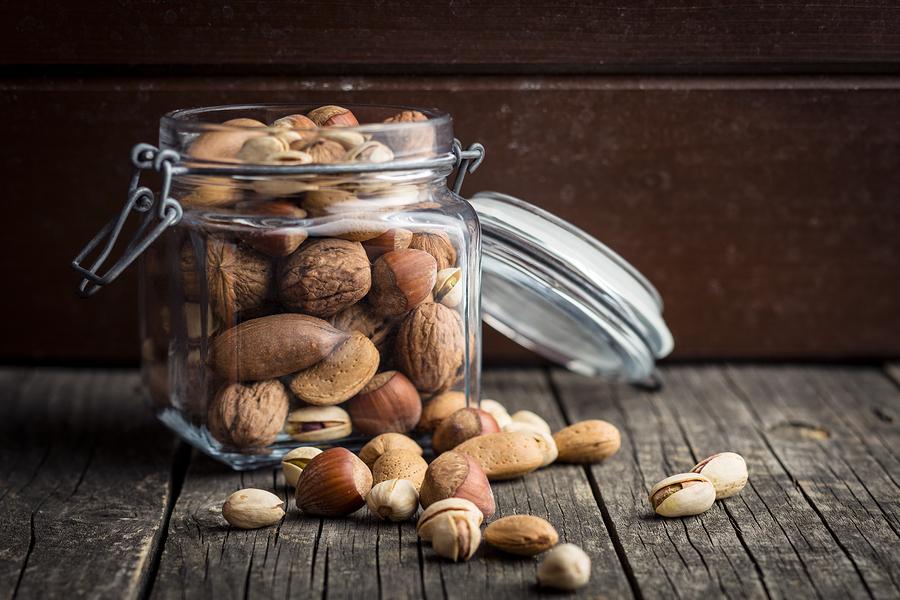Macronutrients and micronutrients are both groups of nutrients required by your body for optimum health. Each of the nutrients within each group is required in varying amounts by the body – and for different reasons. Today we are going to take a look at the difference between the two groups and analyse those that fall into either category!
Macronutrients
The energy that your body requires for essential functions, such as moving, thinking, healing etc, comes from macronutrients. They are given the name ‘macronutrients’ as macro means large, and these nutrients are required in large amounts. There are three macronutrients, and they are proteins, carbohydrates and fats.
Proteins
Protein is necessary for the tissue in the body to repair and grow. It is also necessary for regulating hormones and keeping the immune system functioning well. Each gram of protein contains four calories.
Carbohydrates
Each gram of carbohydrates contains four calories and they are considered to be the primary energy source. Up to 65% of your diet should be made up of carbohydrates.
Fats
Fats are the most calorie dense nutrient, with nine calories in every gram of fat. This group of macronutrients should account for around 20% of your diet. Fats are pivotal for cognitive function, cell function and for protecting the organs in the body. Fats also help the body to absorb micronutrients.
Micronutrients
Although micronutrients are also essential nutrients, they are required in smaller amounts by the body. This is indicated by the use of the word ‘micro’, which means small. This group of nutrients are often referred to as vitamins and minerals and they are important for the metabolic process, as well as physical health.
There are a certain number of key micronutrients that your body certainly needs, and also several additional ones that contribute to your health and wellness.
When you are not consuming enough micronutrients through dietary sources then your body will begin to deplete existing stores. This can be problematic because it can often mean a loss of bone density or decreased muscle mass.
The following are micronutrient vitamins.
Vitamin A
Found in carrots, spinach, and broccoli, vitamin A helps to maintain vision and a healthy immune system.
Beta-Carotene
The most abundant dietary sources of beta-carotene are the brightest fruits and vegetables, such as carrots, tomatoes, sweet potatoes and broccoli. This antioxidant is great for helping to protect the body against the free radical damage that naturally occurs during oxidation.
Vitamin B1
Vitamin B1, also known as thiamine, is most commonly found in beans, nuts and cereal grains. Maintaining an optimum level of vitamin B1 in the body is great for the metabolism. Additionally, it is required if the body is to be able to properly utilise carbohydrates.
Vitamin B2
Also referred to as riboflavin, this vitamin is a beneficial antioxidant. It also helps with the maintenance of the blood cells, the metabolism, and also to keep energy levels up.
Beans, legumes, nuts and seeds, as well as leafy green vegetables, are all beneficial sources of vitamin B2.
Vitamin B6
This water soluble vitamin is present naturally in a wide variety of foods. This is an important vitamin when considering brain function and development.
Vitamin B12
Vitamin B12 has several key functions in the body and can generally only be obtained naturally through animal sources, or with the use of supplements. Furthermore, your body does not make this vitamin itself, so it is necessary that you consciously seek to include it in your diet.
The best animal sources of this vitamin are meat, dairy products, eggs and fish. You can also purchase plant-based products that have been fortified with B12, such as various plant-based milks.
Biotin
This is a micronutrient that it is rare to experience a deficiency of because it is present in so many different foods. Some of the best sources are whole grain foods, eggs, peanuts, soya nuts, and Swiss chard.
Vitamin C
This is one of the easiest vitamins to consume ample amounts of as it is present in the majority of fruits and vegetables. Vitamin C is a powerful antioxidant and helps to maintain the connective tissue. Having an adequate amount of vitamin C will also enable the body to absorb higher levels of iron.
Apples, berries, cabbage and kiwi are all great sources of vitamin C.
Vitamin D
This fat soluble vitamin only naturally occurs in a select few foods. However, several other foods are fortified with vitamin D during the manufacturing process. Vitamin D can also be obtained through exposure to the sun.
An adequate presence of vitamin D in the body will help to promote optimum calcium absorption. On the other hand, a vitamin D deficiency can cause the strength of the bones to weaken.
Vitamin E
Almonds, sweet potato, spinach and avocado are all abundant sources of vitamin E. There are also several other beneficial sources of this vitamin, making it fairly easy to reach the recommended daily amount.
Consuming an ample amount of vitamin E is great for many processes in the body, not least of all repairing damaged skin, balancing the hormones, fighting free radical damage, and helping to maintain healthy cholesterol levels.
Folic Acid
Found in dark, leafy green vegetables, asparagus and beans, folic acid is key to the production of proteins and the formation of new blood cells.
Vitamin K
One of the most important roles of vitamin K is to help the blood clot. It also plays a notable role in bone health. This vitamin can be taken from leafy green vegetables, as well as cheese and eggs.
Niacin
Niacin, which is also referred to as vitamin B3, is necessary in the body to help keep cholesterol and cardiovascular health under control. You can find this vitamin in peanuts, mushrooms and green peas.
Pantothenic Acid
This vitamin can be obtained from both plant-based and animal sources – such as vegetables, legumes and milk. Without an adequate amount of pantothenic acid we are unable to properly utilise the macronutrients that we consume.
The following are micronutrient minerals.
Copper
Copper teams up with iron in the body to help with the formation of red blood cells. It is also beneficial for the health of the blood vessels, the immune system, the bones and the nerves.
Whole grains, beans, nuts and potatoes are good sources of copper.
Iodine
Iodine is found naturally in seaweed, but is also added to salt in many countries. It isn’t unusual for a person to have an iodine deficiency and this can affect the health of a person’s baby, should they be pregnant.
Iron
Iron is present in lentils and chickpeas, and is essential if oxygen is to be carried through the bloodstream to all of the different parts of the body.
Manganese
This mineral is found seeds, nuts, legumes, whole grains and leafy green vegetables. It is necessary for several essential functions in the body. If there isn’t an adequate presence of manganese in the body then the bones may become weak and anaemia may develop.
Selenium
This mineral occurs naturally in soil and therefore is present in certain foods. This micronutrient is only necessary in very small amounts but is key to the function of the metabolism.
Selenium also has antioxidant properties which means it contributes to the protection of the cells in the body. Brazil nuts are a rich source of selenium.
Zinc
Zinc can be obtained through nuts and cereals. A zinc deficiency can cause wounds to heal less efficiently, anaemia to develop, and can also affect cognitive function. A lack of zinc can also cause changes to the appetite, as well as increase the risk of pneumonia and diarrhoea. When a child suffers from a zinc deficiency it can lower their resistance to infection.
Calcium
Calcium is a mineral that we discuss regularly on our blog, and you can click here to read in depth about it.
This mineral is key to the health of the bones and the teeth, as well as helping the blood to clot normally. You can find calcium in green leafy vegetables, such as okra, cabbage and broccoli, as well as in tofu, soy beans and nuts.
Magnesium
Magnesium is quite important when it comes to optimum health and wellbeing. Both your brain and body depend on it to contribute towards several functions. In fact, it is required by every single cell in the body.
The majority of the magnesium stored in your body is found in the bones, with some stores also in the muscles, fluids and soft tissues. Some of the best sources of magnesium are brown rice, beans, nuts and leafy green vegetables.
Potassium
Potassium is an electrolyte that is found in bananas, apricots, carrots, potatoes and whole grains. The body does not naturally produce potassium, so therefore it is important to include an ample amount of it in your diet.
Sodium
Sodium aids in the process of regulating the fluid balance in the body. It also plays a role in how the nerves and muscles function. However, too much sodium in the system can lead to high blood pressure, which is a leading risk factor for heart disease.
Sodium is found most prevalently in processed, packaged foods and those prepared in restaurants. We also add sodium to our food when we use added salt, as this is usually 40% sodium.
References
Related Posts
Cigarettes May Inhibit Inflammation Treatments
Axial spondyloarthritis, also known as AxSpa, is a chronic…











